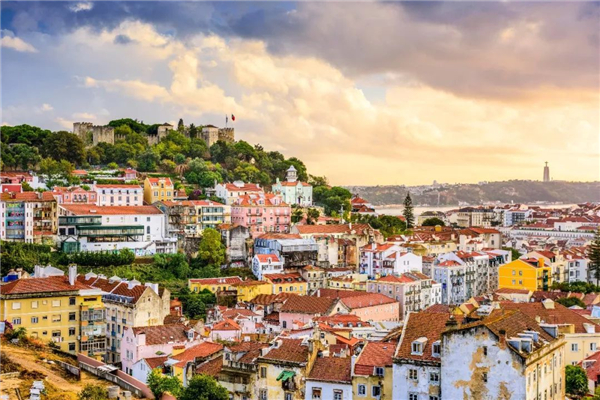Escape is one of the elements of literature and life. Literature and life reproduce each other. If there is any movie that can be called "real yesterday, real today, real tomorrow", Casablanca is one of them.
At the beginning of the film, the thick male voice narration, with the thick lines swimming on the map and the crowd carrying the old and the young: as the Second World War approached, countless people trapped in Europe turned their eyes full of hope or despair to the still free United States, Lisbon became the largest transit point, but not everyone could reach Lisbon directly, so a difficult, circuitous escape route appeared - from Paris to Marseille, across the Mediterranean to Oran (Algerian city), and then by train, car or walk. Travel along the coastline of Africa to Casablanca, French Morocco, where people, with money, influence or luck, may obtain a departure visa to rush to Lisbon, and then from Lisbon to the New World, but the rest are in Casablanca, waiting or waiting...

I used to think that this opening was very quick to create a strong and uneasy atmosphere, but this time, the repeated "Lisbon" in the narration suddenly reminded me of Remak's last long story "Lisbon Night" by Remarque, the author of "No War on the Western Front". At the end of "Casablanca", he gave up his beloved, gave his precious pass and ticket to the Bergmans' Bogart, and quietly watched the two walk to the plane in the morning fog - that scene was extremely touching, but I had never thought about where the flight the two were flying. It turned out that Casablanca and Lisbon were two transit points closely linked on an escape route. Lisbon Nights depicts the Portuguese coast as the last hope of World War II, with Lisbon's cruise ship to New York the closest European route to the United States.
The novel also takes place in 1942, when Lisbon gathered many exiles waiting to travel to the United States. Late one night, "I," whom I had never known, met Joseph Schwartz at the docks. "I" was anxious that he and his wife did not have a ticket, but Schwartz offered to give "me" two tickets on one condition: to listen to him tell his story until dawn. The anti-Nazi Schwartz, who had been accused of being a gestapo stormtrooper squadron leader and imprisoned in a concentration camp, escaped from Germany, and a few years later ventured back to his hometown to visit his wife Helen, Helen resolutely left with her husband, the two traveled to Switzerland, France, Spain, escaped all kinds of pursuit and imprisonment, separated and reunited, and when they accidentally got a visa to go to the United States, they worked hard to reach Lisbon, but at the last moment they could not board the ship to go to the "Promised Land"...
The novel is very good. The giant ship moored in the harbor begins: "I stare intently at that ship. It was lit with dazzling lights and moored on the Tagus River... The ship was preparing for the voyage—like an ark in the age of the Flood. It is indeed an Ark. In those months of 1942, every ship that left Europe was an ark. Mount Ararat is America, and the flood is rising day by day..."
Unlike casablanca, which depicts the route to Morocco, Lisbon Nights recounts another european exile route through the mouths of characters. Schwartz asked, "Have you ever heard of 'Bitter Road'?" "Who hasn't heard of it?" It runs from Belgium to the Pyrenees. ”
"The Bitter Road" appears in the novel as a metaphor. This "bitter road" of massive retreat during World War II began after Germany invaded Belgium and broke through the Maginot Line. "First there were cars, piled high with furniture and bedding, and then all kinds of means of transport, wagons, trolleys, baby carriages. Over time, the last was an endless stream of pedestrians, heading south on a bright summer day, chased all the way by dive bombers. "The writing of names and letters by a separated family member on walls, on the front of a house and on street signs with nuggets of coal, chalk, paint or anything else that can be used becomes something similar to a roadside gazette. People who have been in exile for several years, who have been hiding from the police, have also developed an "underground railway", a communication network, "from Nice to Naples, from Paris to Zurich: some friends who can be trusted, from whom they can get news, intelligence and advice, and if necessary, they can stay with you for a night or two..."
The death toll of the Great Plague often outweighs that of war, and people often compare the two, but on closer inspection, there are still too many differences.
I went to Lisbon a few years ago and, while strolling along the open and picturesque banks of the Tagus River, I knew it was the largest river in the Iberian Peninsula, emanating into the Atlantic Ocean in Lisbon. I hadn't read Lisbon Nights yet, and I didn't know that Remarck had written the following sentence: "Below is the river, and the river is freedom and life." ”
Where is the true "Promised Land" for humanity? After 80 years, Remarck can no longer answer. (Yu Yun)